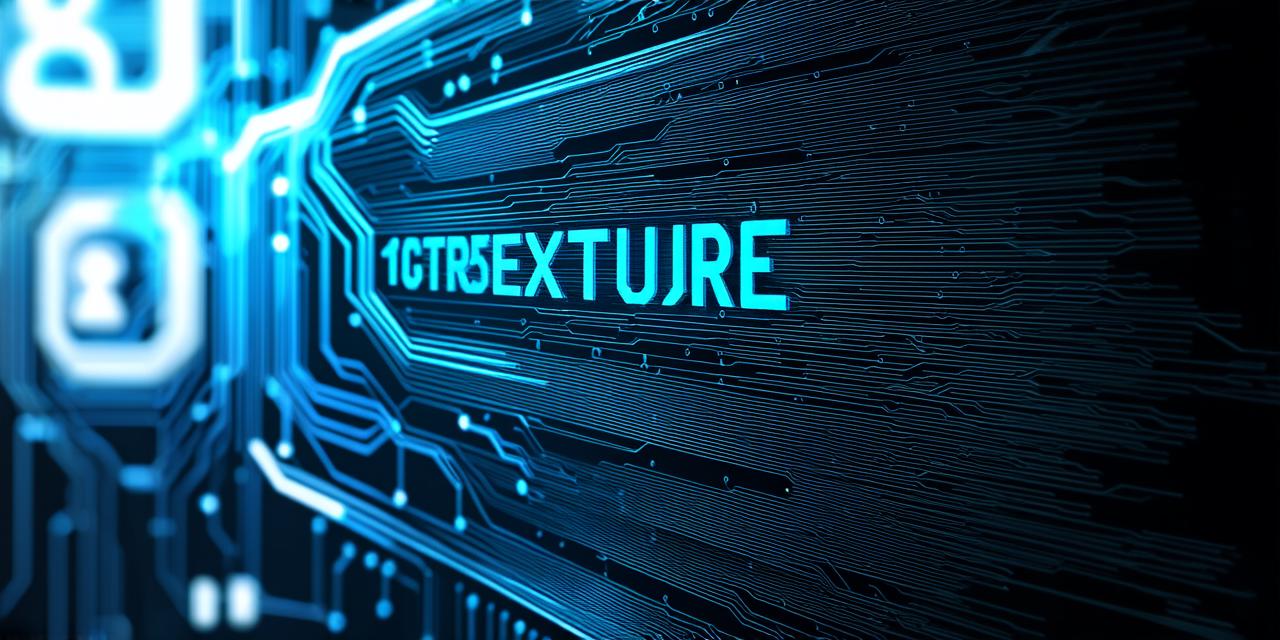Here’s the corrected HTML code for the article:
Blockchain technology is rapidly changing the way we think about security and trust. With its decentralized nature, it’s no wonder that blockchain has become an attractive solution for securing sensitive data and transactions. However, not all blockchains are created equal. In this guide, we will explore the different types of blockchain and their strengths and weaknesses to help you find the most secure blockchain for your needs.
Types of Blockchain
There are three main types of blockchain: public, private, and hybrid. Each type has its own unique features that make it suitable for different use cases.
Public Blockchain

Public blockchains are open to anyone and allow anyone to participate in the network. They are often used for decentralized applications (dApps) and cryptocurrencies like Bitcoin. One of the main benefits of public blockchain is its transparency, which makes it easy to verify transactions and ensure that they are secure.
However, public blockchain can also be slow and expensive to use. This is because every transaction on a public blockchain has to be verified by the entire network, which can take a long time and require a lot of computational power. Additionally, since anyone can participate in the network, there is always the risk of malicious actors attempting to compromise the network.
Private Blockchain
Private blockchains, also known as consortium blockchains, are permissioned networks that only allow certain participants to join. They are often used for enterprise applications and supply chain management. Private blockchain provides a higher level of security than public blockchain because it is restricted to a smaller group of participants, which reduces the risk of malicious actors attempting to compromise the network.
However, private blockchain can be less transparent than public blockchain. This means that transactions on a private blockchain may not be publicly accessible, which can make it difficult to verify their authenticity. Additionally, since private blockchain is controlled by a single entity or group of entities, there is always the risk of centralization and a single point of failure.
Hybrid Blockchain
Hybrid blockchains combine the best features of both public and private blockchain. They allow for greater privacy and security while still maintaining transparency. Hybrid blockchain can be useful for organizations that need to balance the benefits of both public and private blockchain.
Security Features to Look For
When choosing a blockchain platform, it’s important to consider the security features that are most relevant to your use case. Some key security features to look for include:
- Consensus Mechanism
- Encryption
- Access Controls
- Auditing and Compliance
Case Studies and Personal Experiences
One of the best ways to understand the strengths and weaknesses of different blockchain platforms is to look at real-world case studies and personal experiences. Here are a few examples:
- IBM’s Food Trust
- Stellar’s Remittances Solution
- Ethereum’s Smart Contracts
The Future of Blockchain Security
As blockchain technology continues to evolve, we can expect to see new security features and solutions emerge. Some potential developments include:
- Zero-Knowledge Proofs
- Multi-Party Computation
- Sidechains
Summary
When it comes to choosing the most secure blockchain, it’s important to consider the specific needs of your organization and use case. Each type of blockchain has its own unique features and strengths, so it’s important to carefully evaluate each option before making a decision. By understanding the different types of blockchain and their security features, you can make an informed choice that meets your needs and helps protect your data and assets.
